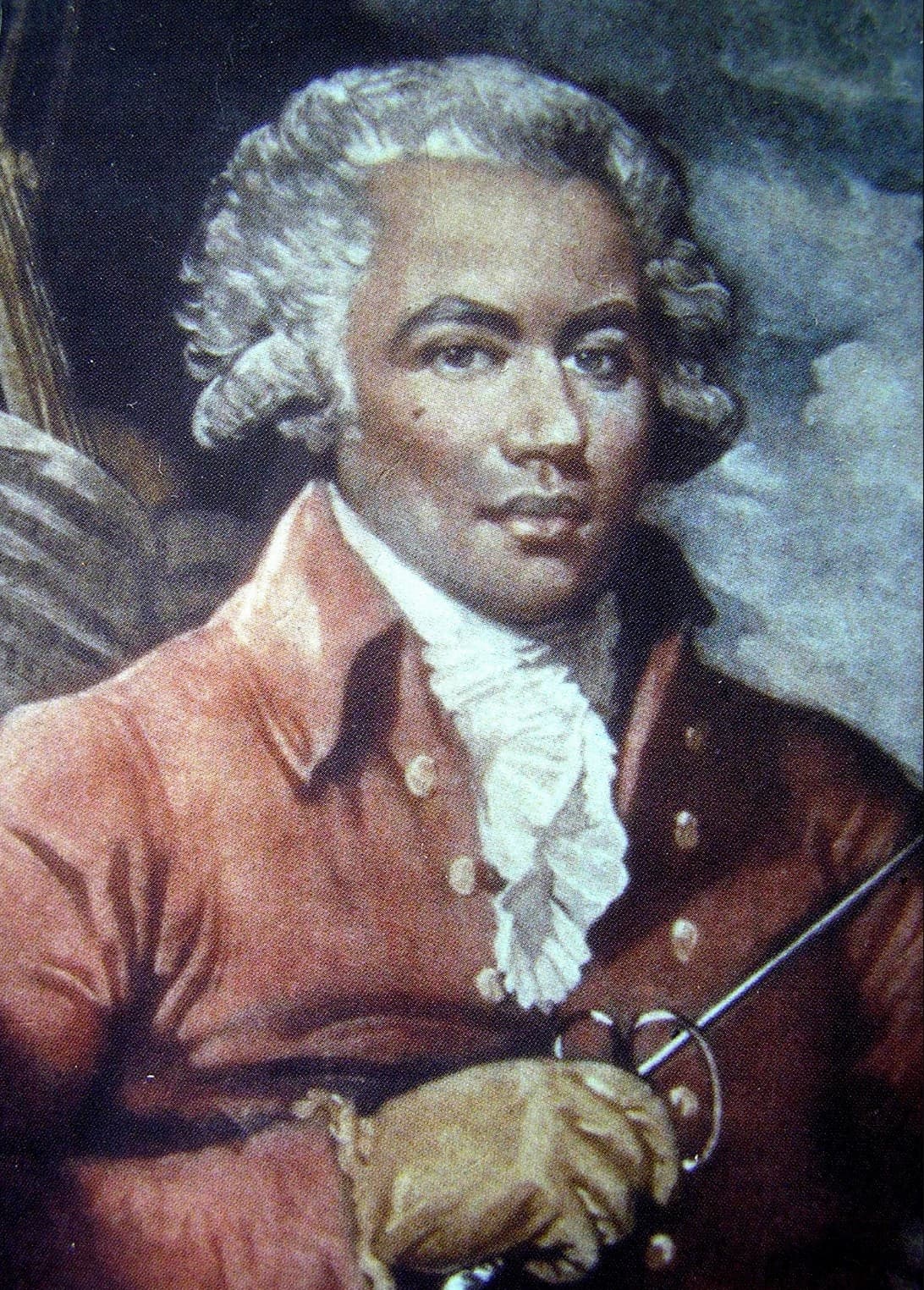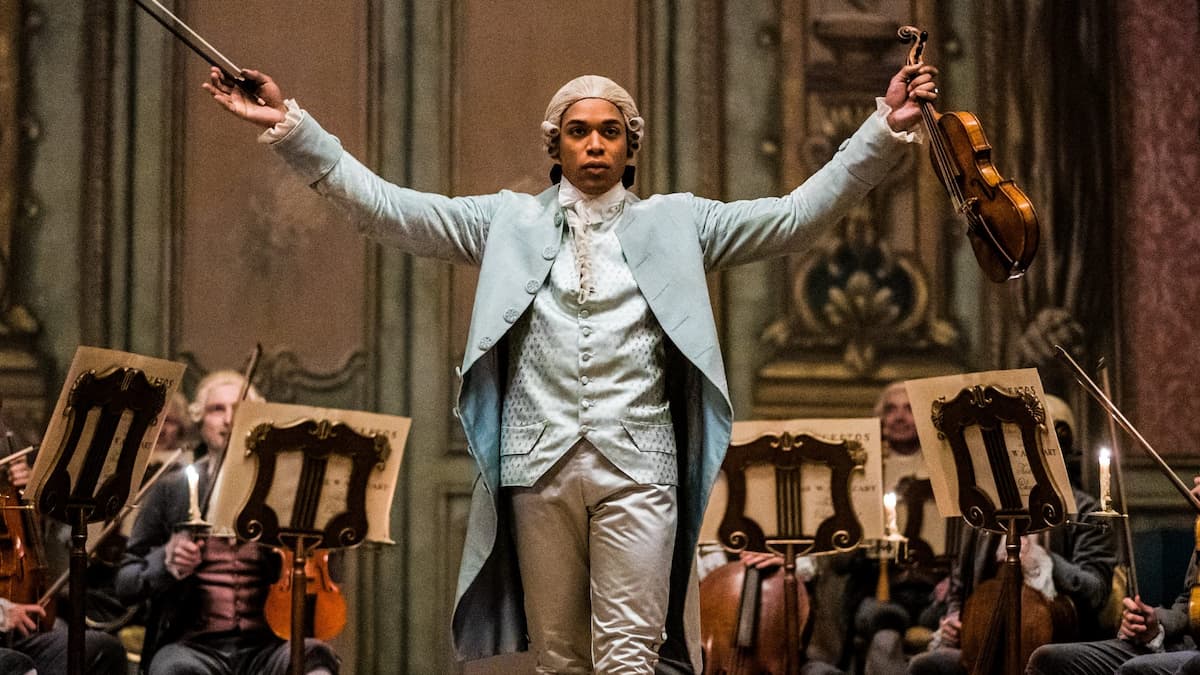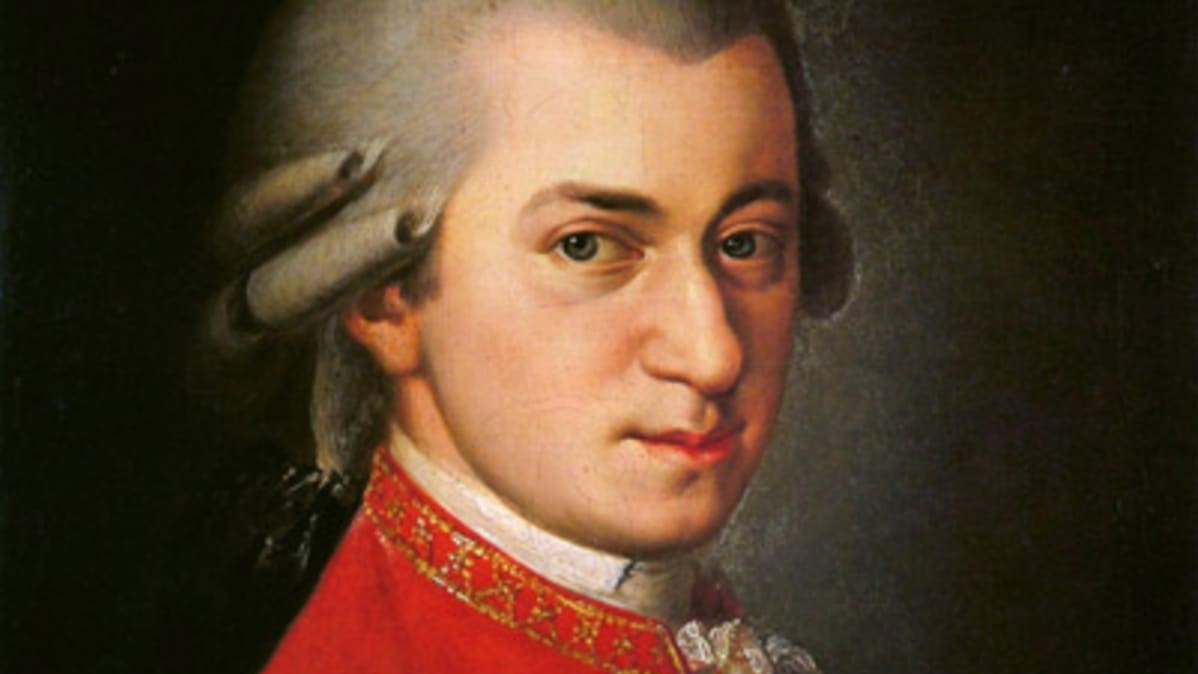It's all about the classical music composers and their works from the last 400 years and much more about music. Hier erfahren Sie alles über die klassischen Komponisten und ihre Meisterwerke der letzten vierhundert Jahre und vieles mehr über Klassische Musik.
Total Pageviews
Thursday, July 13, 2023
Peter Paul And Mary Alive "Blowing In The Wind"
Wednesday, July 12, 2023
Braveheart - For The Love of a Princess // Danish National Symphony Orchestra
Freddie Mercury - Too Much Love Will Kill You – Lyrics
Making Of "My Heart Will Go On" (Interviews with Céline Dion, James Horn)
Tuesday, July 11, 2023
Bésame Mucho - Karolina Protsenko (feat. Ani Leva)
Édith Piaf - Short Biography (Life Story)
Monday, July 10, 2023
Pink Floyd - Shine On You Crazy Diamond (Parts 1-5 & 7)
Why Is Mozart Genius?
Sunday, July 9, 2023
London Symphony Orchestra ♫ The Symphonic Beatles Play ♫ The Best
Saturday, July 8, 2023
André Rieu ft. Gheorghe Zamfir - The Lonely Shepherd
Mozart: Concerto for Two Pianos KV 365 | Lucas and Arthur Jussen|
Friday, July 7, 2023
Chevalier: 13 Facts About Composer Joseph Bologne That Inspired the New Movie
Chevalier: 13 Facts About Composer Joseph Bologne That Inspired the New Movie
Classical music movies are having a moment. Last year, Cate Blanchett played a renowned conductor in Tár, and Bradley Cooper is set to portray Leonard Bernstein in 2023’s Maestro. But the next big classical music movie due to hit our screens is Chevalier, about the life of violinist and composer Joseph Bologne, Chevalier de Saint-Georges .
Here are thirteen facts about him to whet your appetite for the movie.

Joseph Bologne, Chevalier de Saint-Georges
1. Joseph Bologne was born in 1745 in Guadeloupe to a wealthy planter named Georges de Bologne Saint-Georges and his sixteen-year-old slave Nanon. But they didn’t stay in the Caribbean for long: at the age of seven, Bologne was taken to France to be educated. Two years later, his parents sailed together to Paris to join him.
2. He was ridiculously multi-talented. Not only was he trained as a fencer and overall sportsman, but he was also an accomplished violinist, composer, and conductor.
3. At the age of 13, he began studying with fencing master Nicolas Texier de la Boëssière, one of the men instrumental in the development of modern fencing. A rival fencing master named Picard once insulted a young Bologne, derisively referring to him as “Boëssière’s mulatto.” After the insult, Picard and Bologne played a famous match. Whether Bologne wanted it to or not, that match was rife with symbolism about race, and pro-slavery and pro-abolitionists wagered over the outcome. The winner? Bologne! His father was so pleased, he bought his son a horse and carriage: one of the ultimate status symbols in eighteenth-century France.
4. He wasn’t just a great fencer; he was a great athlete, period. He was a fabulous runner, boxer, shot, swimmer, dancer, and even skater…and he excelled at all of those disciplines while also becoming one of the best musicians in Paris!
5. When he graduated from the Royal Polytechnique Academy in 1766, Bologne was made both a gendarme and a chevalier, resulting in his new name and title: Joseph Bologne, Chevalier de Saint-Georges.
6. Because of French law and custom at the time that forbid mixed-race marriages, it was high-nigh impossible for Bologne to ever marry anyone, especially from his aristocratic social circle. However, that didn’t stop wealthy French women from falling in love with him. His most intense relationship was with married actress Marie-Josephine de Montalembert. She bore him a son, but tragically, her husband sent the baby away after its birth, leading Bologne to lose both his lover and his child in one blow. In 1779 Bologne was assaulted in the street, and gossip theorized that the gang was paid off by the jealous husband.

7. We don’t know who taught Bologne how to play violin, but we know he was an extraordinary player. In 1769 he joined the orchestra of the Concert des Amateurs, Gossec’s orchestra. In 1772 he performed two of his own violin concertos, and in 1773 he became the orchestra’s concertmaster and conductor. Audiences raved about his leadership.
8. After the Concert des Amateurs had to be dissolved due to lack of money, it regrouped. This reconstituted ensemble was known as the Concert de la Loge Olympique. Perhaps its most famous contribution to music history is that it commissioned Joseph Haydn’s famous Paris Symphonies. Apparently, Bologne traveled to Austria to meet with Haydn before premiering the set of six symphonies back in Paris, to great acclaim.
9. Due to his work with the Concert des Amateurs and Concert de la Loge Olympique, Bologne was considered to be a natural candidate to take over the Paris Opéra. However, several singers presented a petition to Queen Marie-Antoinette, stating they could not “submit to the orders of a mulatto.” Bologne was a favorite of the queen, and although Bologne was ultimately not named to be the leader of the Paris Opéra, he was invited to her private musicales.

Wolfgang Amadeus Mozart
10. During the summer of 1788, Bologne was living in quarters provided by the Duc d’Orléans’s wife, who had hired him to conduct in her private theater. The Duc’s personal secretary also lived in the mansion, and that summer the secretary welcomed a guest of his own: Wolfgang Amadeus Mozart! So for a few months, the two great musicians lived at the same address.
11. During the French Revolution, Boulogne volunteered to join the National Guard. In September 1792, a corps of one thousand “colored” soldiers was formed. That corps eventually earned the nickname of the “Légion St-Georges” after their celebrated leader. During the confusion and paranoia of the Reign of Terror, Boulogne was imprisoned for a year and a half, and somehow he – unlike many of his friends and patrons – managed to escape execution.
12. Late in his life, he traveled to Saint-Domingue, now present-day Haiti, to take part in the revolution there. He stayed for such a long time that some of his friends gave him up for dead, but he eventually returned to Paris, horrified at the brutality of the conflict.
13. He suffered from poor health in the late 1790s and died – with no one near but a few faithful friends – in 1799 of gangrene.
So now that you know more about Joseph Bologne’s extraordinary life and accomplishments, take a look at the trailer and see how they might be dramatized for the big screen! Chevalier is scheduled to be released in theaters in April 2023.